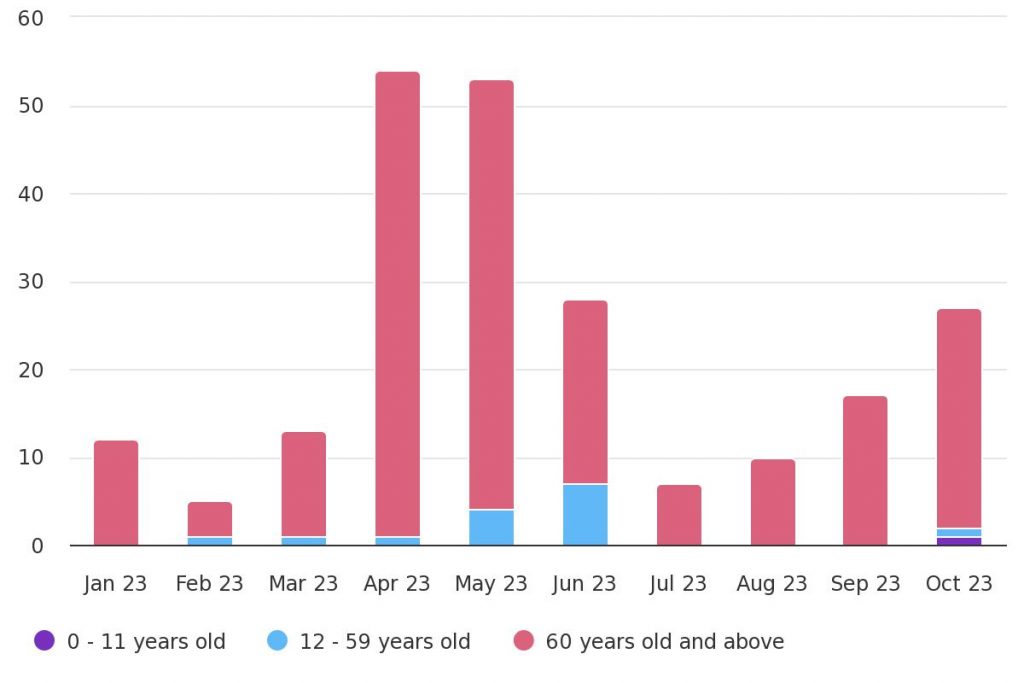SINGAPORE: The first child death from COVID-19 occurred in Singapore last month, data from the Ministry of Health shows. While the disease has affected the elderly and immunocompromised all over the world by a very wide margin, there have also been deaths occurring among younger people.
There have been 226 deaths so far in Singapore this year from Covid-19, MOH statistics show. The highest number of deaths, 210, occurred among individuals from the age of 60 and above, while 15 people from the ages of 12 to 59 succumbed to the disease between January and October this year.


Read also: Ong Ye Kung: More people may fall sick as another COVID wave strikes
April and May saw the highest number of deaths, 54 and 53, respectively, while February saw the fewest number, 7. Since the pandemic began early in 2020, 2,710,617 Singaporeans have been infected with Covid. While 1,900 have died, 2,149,583 have recovered from the disease.
Singapore has one of the highest vaccine coverages in the world, with a total of 15,302,530 vaccine doses administered as of August 2023.
Early last month, Health Minister Ong Ye Kung said that Singapore was experiencing another wave of COVID-19 infections, with the estimated number of cases having doubled from 1,000 three weeks before to 2,000 daily over the last two weeks.
“It is driven mostly by two variants, the EG.5 and HK.3, both of which are descendants of the XBB Omicron variant. Together, they account for over 75% of cases now,” he said. Mr Ong added that this is the second time Singapore has experienced a Covid wave this year, with the first occurring from March to April.
He also said there has been no evidence that the new coronavirus variants are more likely to cause severe illnesses than the various variants. The current vaccines work well to protect individuals from severe symptoms if infected with the new variants.
This week, Dr Maria Van Kerkhove, the director for epidemic and pandemic preparedness and prevention for the World Health Organization, underlined in an interview that COVID-19 is still circulating in every country and is still a threat, especially to older adults and those who are vulnerable to disease.
In the interview posted on X (formerly Twitter), she also talked about the most recent virus variants responsible for the COVID-19 pandemic and Long Covid. This condition can be severely debilitating when a person experiences symptoms for one year or even longer after being infected.
“We don’t have great estimates, but there is one analysis that suggests that 6 per cent of symptomatic individuals suffered from post-Covid condition,” she said, adding that individuals with the condition suffer from many different effects on their organs, including the brain, lungs, and heart, from a period of between four and 12 months.
“Many people do recover after 12 months, but there are still people who are suffering significantly from this,” she added.
A study early in the pandemic from the United States Center for Disease Control and Prevention showed that a large majority of children and teenagers who died from COVID-19 had an underlying medical condition or were from minority populations.
Read also: COVID-19 is still a threat and is circulating in every country—WHO /TISG

